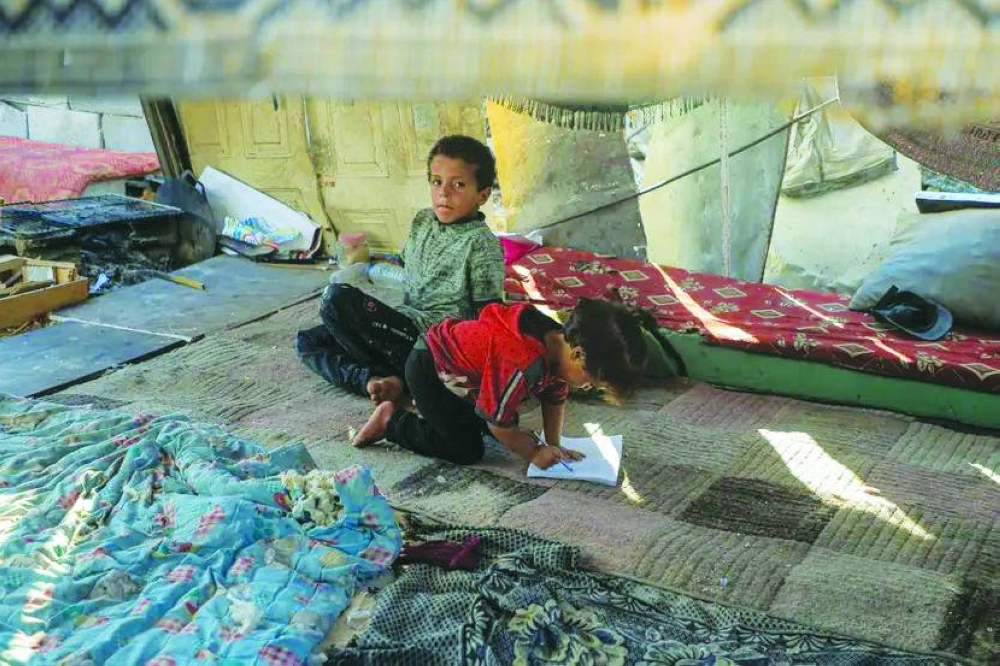The war on Gaza has reached yet another milestone with a death toll that has now surpassed 40,223, according to health authorities there.
This figure is 2% of the Gaza population and does not reflect those who are missing, under the rubble, or those who have died as a result of indirect impacts of the war.
The last 10 months have resulted in people being displaced and forced to live in tents or schools, with around 22% facing an extraordinarily high level of food insecurity.
What is more is that humanitarian aid is barely reaching any of the population, with a lack of water, sanitation, and proper disposal of garbage, which in turn is spreading diseases such as polio that are highly contagious.
Last month, the World Health Organisation (WHO) reported that polio had been found in sewage samples from sites in Khan Younis and Deir Al-Balah.
The UN has called for an urgent vaccination drive against polio. “I am appealing to all parties to provide concrete assurances right away guaranteeing humanitarian pauses for the campaign,” said UN Secretary-General Antonio Guterres last week.
With that said, the only way to avert this from becoming a catastrophe is that there must be a Polio Pause.
Children are suffering unimaginably from mental health, being separated from family members, being orphaned, losing eye sight or limbs, where at least “more than 1,000 Palestinian children had one or both legs amputated since Oct 7, Unicef reports.
Moreover, the war in Gaza is taking a devastating toll on children and youth and their education.
Back-to-school season is approaching, and the children of Gaza have lost one year of education.
Schools have been used for shelters, such as the UN schools that were considered “safe spaces” where the displaced could find refuge.
However, the UN Human Rights Office said: “At least 21 schools in Gaza have been targeted since early July.”
In addition, according to Education Cluster, who conducted satellite imagery analysis of the most recently collected satellite image on July 6, 2024, UNOSAT identified: “Educational infrastructure in Gaza has been significantly affected, with 92.9% of schools sustaining some level of damage to their buildings, including direct hit, damaged, and likely damaged. At least 84.6% of schools require full reconstruction or significant rehabilitation before resuming schooling.”
There is a serious violation against education in Palestine; as of August 2024, according to the Ministry of Education and Higher Education, 630,000 students are deprived of accessing their schools, and 88,000 students have been deprived of accessing their universities since the beginning of the war.
For Palestinians, education is the foundation of society and extremely valued, with top scorers in exams; however, it is clear that scholasticide is taking place.
According to the UN: “Scholasticide is a term that refers to the systemic obliteration of education through the arrest, detention, or killing of teachers, students, and staff, and the destruction of educational infrastructure.”
The ongoing conflict could leave children out of school for a very long time, and when this happens, learning ends, and there is a high risk they may never return. This can impact them in life in the long run, when it comes to their mental health, jobs, income, and much more.
It is evident that children are the largest victims of war; therefore, the Safe School Declaration, which is a political agreement to protect education in armed conflict, should be implemented immediately so that education is protected.
In light of school closures and loss of education, this position could pressure families to resort to early marriage, especially those girls who have been orphaned.
Moreover, women and girls tend to de-prioritise food intake when access to food is running low; this includes pregnant women who are undernourished, which potentially risks a baby’s life.
According to Save the Children, women are facing substantial challenges during their pregnancies; “an estimated 50,000 babies have been born in Gaza over nine months of conflict, with many women giving birth in traumatic, unhygienic, and undignified conditions without access to basic services.”
Besides this, due to the shortage of water, menstrual hygiene management and women’s health are majorly hindered as women start to improvise and increase the risk of infections.
According to CARE, “more than 540,000 women and girls in Gaza are of reproductive age and require access to basic hygiene and health essentials.”
There is also the unimaginable psychological and physical impact of the war, including as many as 3,000 women who have lost their husbands, UN Women reports.
In conclusion, the situation in Gaza is extremely dire; both sides need to come to an agreement as a ceasefire is essential more than ever.
Qatar and Egypt, among other countries, are in mediation talks on the Gaza ceasefire and captive release deal in Doha.
Qatar’s Amir His Highness Sheikh Tamim bin Hamad al-Thani and US Secretary of State Antony Blinken discussed mediation efforts to end the war in the Gaza Strip on Wednesday, the Amiri Diwan said.

